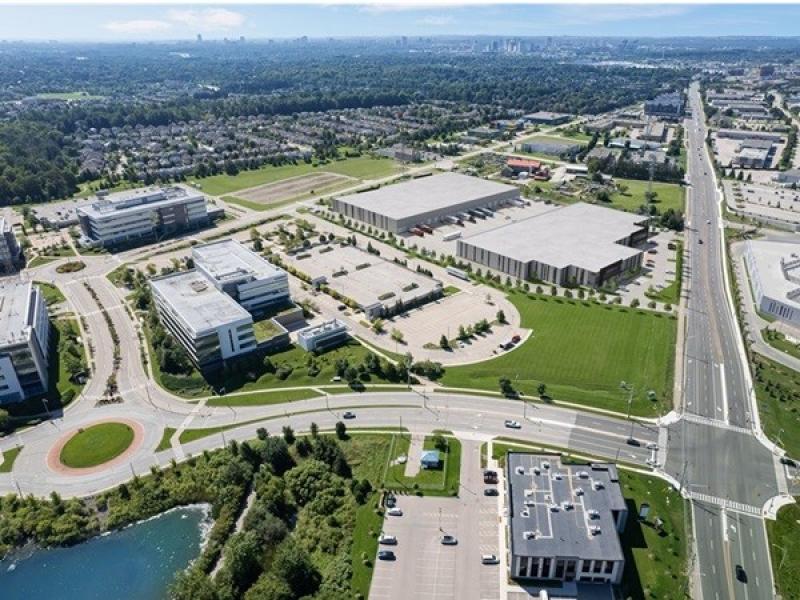Toronto has improved from fourth to third in CBRE’s 12th annual Scoring Tech Talent ranking of North America’s top technology employment markets, while Waterloo Region rose an impressive 11 spots over its 2024 position to tie for the biggest gain and move into seventh spot.
“We are seeing seed companies feed off the infrastructure that's been left behind by some of the major tech titans, which has allowed a lot of this natural growth organically throughout both Toronto and Waterloo,” Waterloo-based CBRE senior vice-president Todd Cooney said during a Sept. 9 webinar to discuss the report.
“It allows both the University of Toronto and the University of Waterloo — which have two of the top computer science programs in the world — to have a lot of homegrown talent stay local.”
Canada had three other markets in the Top-15 and six in the Top-40, as:
- Vancouver moved up one spot to No. 10;
- Ottawa slipped a spot to No. 11;
- Montreal stayed at No. 15;
- Calgary improved three spots to No. 17;
- Quebec City jumped five positions to No. 35; and
- Edmonton vaulted 11 places to No. 38.
Tech talent refers to highly skilled workers in more than 20 tech-oriented occupations — including computer and information systems managers, software developers and hardware engineers — across all industries. The rankings are determined by a weighted analysis of 13 metrics, such as talent concentration, the talent pipeline, and research and development investment.
CBRE also ranks the next 25 emerging North American tech markets on a narrower set of criteria. Halifax improved from fifth to No. 2; London, Ont. remained at No. 4; and Winnipeg moved up four spots to No. 9 on that list.
“Many tech talent employers look to these markets to expand their geographical reach and potentially achieve some cost-efficiency,” San Francisco-based Colin Yasukochi, a CBRE executive director and the report's author, said during the webinar.
Canadian job tech growth outpaces the U.S.
Canada’s 5.9 per cent tech talent job growth rate far surpassed the 1.1 per cent growth in the U.S. in 2024, as it added 66,600 jobs overall — primarily in the high-tech industry.
The New York Metro area added the most tech talent jobs (47,940) between 2021 and 2024, followed by Dallas-Fort Worth (47,100) and Toronto (42,900). Calgary had the highest overall tech job growth rate at 61 per cent, with Waterloo Region following closely behind at 58 per cent.
Tech talent comprises more than 10 per cent of total employment in Ottawa, Waterloo Region and Toronto. The 50-market average was 5.3 per cent.
Artificial intelligence is growing in importance
The number of computer and information systems managers surged by 16 per cent in Canada due to the widespread adoption of artificial intelligence (AI), making that job the fastest growing among all tech roles across North America.
“We're seeing many companies realign and up-skill their existing tech talent workforces to pursue AI initiatives,” Yasukochi said. “They're shifting around and retraining their existing employees toward AI, and that has led to a 50 per cent increase in AI-skilled workers across the U.S. and Canada based on analysis we did of LinkedIn data.”
Toronto, Vancouver and Montreal account for 62 per cent of Canada's AI talent, according to the report.
The rapid growth of AI-related companies led to a rebound in office leasing activity by the high-tech industry. In the first half of 2025, tech companies accounted for 12.7 per cent of total Canadian office leasing activity, up from 9.8 per cent in 2023.
“We're very optimistic about tech talent and AI really leading the next innovation cycle and contributing to business and real estate growth,” Yasukochi noted.
Canada is less expensive than south of the border
Total operating costs for tech companies increased in 2024 due to higher average wages, even as many organizations reduced their real estate footprints. Demand for AI-related roles contributed to increased wages, which grew by 3.9 per cent in the U.S. and 5.2 per cent in Canada.
Canada still had the eight least expensive markets in the Top-50, however, based on the total annual labour and real estate costs for a 500-person company occupying 60,000 square feet of office space. Edmonton was the cheapest at US$34.59 million while the San Francisco Bay Area was the most expensive at US$86.73 million.
“The ecosystem, coupled with compelling economics, has made us a magnet for top tech companies,” Cooney said.
San Francisco-based CBRE first vice-president Caroline O’Loughlin said during the webinar smaller tech firms that can’t compete for talent wage-wise with large companies are prioritizing the delivery of “really exceptional” employee and office experiences to try and level the playing field by offering in-house amenities and locations in vibrant neighbourhoods.










